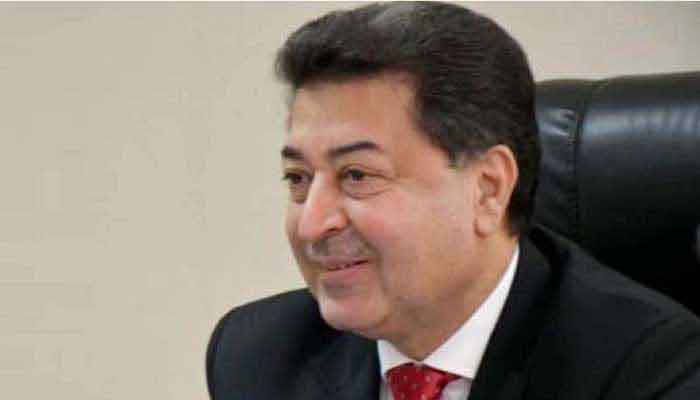ECP takes decisions without any fear and will continue to do so: CEC Sikandar Sultan says
"The Election Commission takes decisions according to the Constitution and law," says Sikandar Sultan Raja
ISLAMABAD: Chief Election Commissioner Sikandar Sultan Raja Wednesday said that the Election Commission of Pakistan (ECP) takes its decisions without any fear and will continue to do so.
The CEC made these remarks today while talking to the journalist, according to Geo News.
"We are not concerned if anyone gets angry or agrees with us. Everyone is our friend. The Election Commission takes decisions according to the Constitution and law."
He said that the government has to decide when the elections are to be held, adding “our job of the Election Commission is to conduct free and fair elections and we are always ready for it”.
"The work on delimitation is in full swing and the ECP's position regarding the census was clear that it can not be done before the Census 2017 results are published which were finally issued in May 2021."
Work on new delimitations began after the census results were published, he added.
A constitutional amendment was introduced regarding the 2018 elections and delimitation, the CEC said.
Raja added that the government wants a digital census and the delimitation would be completed timely if the results are available by December 2022.
If the results are delayed then the elections will be held on the basis of the 2017 census, he said
Regarding the resignations of the PTI MNAs, CEC Raja said former deputy speaker Qasim Suri did not forward the case to ECP.
“The hearing on foreign funding is underway and it is necessary to give a chance to all the parties.”
NA general seats reduced from 342 to 336
Meanwhile, the ECP in its report on the initial delimitation of constituencies has reduced National Assembly seats from 342 to 336. The delimitation was done as per the 2017 census.
Punjab’s share in the legislature has been cut by 10 seats, from 183 to 173, general seats cut from 148 to 141, whereas women's seats reduced from 35 to 32. Sindh’s representation in the National Assembly remains unchanged as per the draft report of the new delimitation, i.e. 75 seats, 61 general and 14 women seats.
Khyber Pakhtunkhwa is the major beneficiary of the new exercise against the backdrop of the merger of tribal areas which previously had 12 NA seats. KP had 35 general and eight women’s seats (43 total seats) previously, whereas now its tally has gone up to 55 seats with 45 general and 10 women seats.
Likewise, Balochistan has increased its representation in the lower house of the parliament with 16 general and four women seats (20 seats) while previously, it had 14 NA constituencies and three women seats in the legislature.
Islamabad Capital Territory has also gained one general seat and now it has three NA seats. Hence, the women reserved seats remain unchanged as well as the seats reserved for non-Muslims, i.e. 10.
As per the draft report, the Punjab Assembly consists of 371 seats, including 297 general seats, followed by the Sindh Assembly with a total of 168 seats including 130 general seats, the Khyber Pakhtunkhwa Assembly with 145 seats including 115 general seats and the Balochistan Assembly with 65 seats including 51 general seats.
-
Security forces gun down 30 terrorists in multiple IBOs in KP: ISPR
-
MQM-P calls for new province in Sindh
-
US report validates Pakistan military edge over India: PM
-
Banned TTP poses serious threat to Pakistan security: UNSC panel
-
CM Afridi clarifies remarks on by-poll after ECP requests army deployment
-
Dubai sees 3.2m Pakistani passengers in 2025 as airport sets new milestone
-
Security forces kill 23 Indian proxy terrorists in KP's Kurram
-
Pakistan to construct island to boost oil exploration: report












